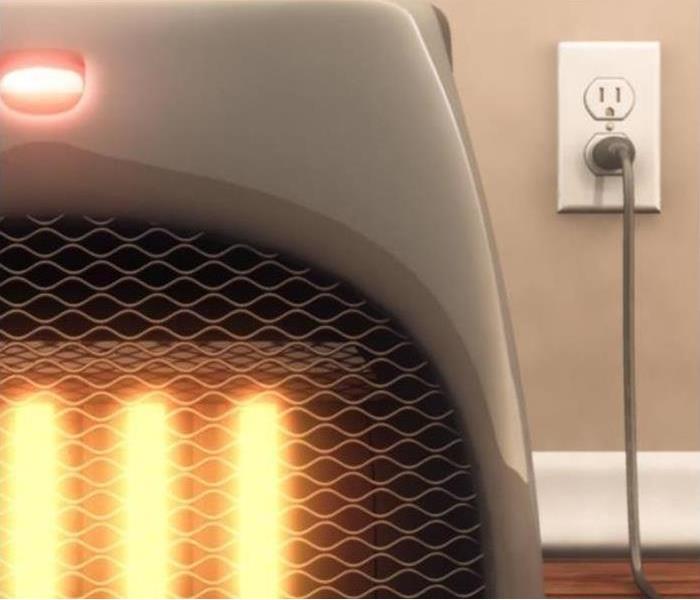Space Heater Safety Tips
1/14/2019 (Permalink)
Unfortunately, each year many homes in Indianapolis catch fire causing death and serious injury to people. Some of these home fires are caused by space heaters and alternative heating methods. Often, these fires can be avoided with better preparedness and using greater caution.
One main reason space heaters produce fires, is that they're placed too close to flammable objects in the home, such as furniture, bedding, mattresses, and clothing. Wiring and insufficient maintenance is another top reason for heater malfunctions.
Dangerous & Convenient
Many people use space heaters to heat their homes or to warm areas that lack sufficient heat, like a bathroom or spare bedroom. Electric space heaters can help warm a room quickly. However, they can be as dangerous as convenient if used improperly.
Think Safety First
Caution should be used no matter what system or device is used to heat your home. Not all homes are equipped with a central HVAC system and alternative heating methods are sometimes needed, such as space heaters, wood-burning stoves, and fireplaces.
Things to Avoid When Using Space Heaters
Never use an extension cord or power strip with space heaters. Always plug them directly into a wall outlet. Space heaters pull a lot of power and can quickly overheat a power strip or extension cord which can result in a home fire.
Home Heating Safety Tips
1. NEVER use an oven or stove to heat your home.
2. Keep heaters away from where children and pets could play with them.
3. Space heaters and candles should NEVER be left unattended or used overnight.
4. If possible, only use space heaters that shut off automatically if tipped.
5. Place all heaters on a level, hard surface with a minimum of three to four feet clearance of any combustible materials.
6. Never place heaters in a doorway or in high-traffic areas where they can be tripped over or knocked down.
7. Test the batteries in your smoke alarms and carbon monoxide detectors.
8. Develop a fire escape plan and practice it with everyone who lives in the home.
9. Designate a safe place for everyone to meet away from the house if a fire was to occur.






 24/7 Emergency Service
24/7 Emergency Service
